By Lee Habeeb
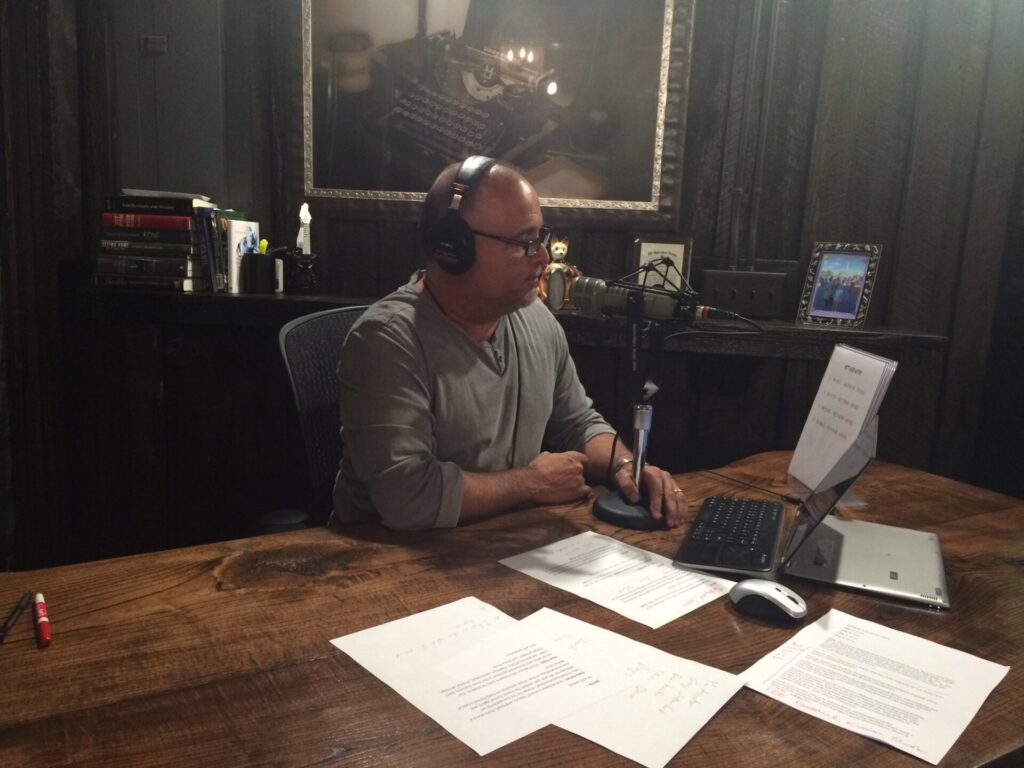
I recently came across a column in the Oxford Eagle by Carter Wilkie (re-printed below courtesy of the Oxford Eagle) about Oxford’s past and future. It was the usual lament about the loss of Oxford’s great charms, and how it has become a “sprawling city of big box stores and restaurant chains.” The author struck a few positive chords about growth but soon added that “Faulkner’s Oxford” is gone, and quoted another writer, Lisa Hayworth, who noted that Oxford’s “golden age is over.”
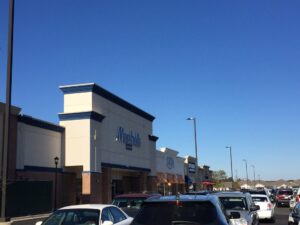 Wilkie fired off his missive from his home in Boston, a town that has seen its share of growth since it’s early days. I am sure that as that city grew, critics like Wilkie fired off columns to the local papers talking about the good old days of Boston before that damned electric light bulb ruined the quaint glow of kerosene lamps. Before all of those God forsaken cars replaced the horse and buggies. Before all of those ugly tall buildings got built downtown, and all of those hi-tech companies started building around that former quaint divinity school called Harvard in Cambridge.
Wilkie fired off his missive from his home in Boston, a town that has seen its share of growth since it’s early days. I am sure that as that city grew, critics like Wilkie fired off columns to the local papers talking about the good old days of Boston before that damned electric light bulb ruined the quaint glow of kerosene lamps. Before all of those God forsaken cars replaced the horse and buggies. Before all of those ugly tall buildings got built downtown, and all of those hi-tech companies started building around that former quaint divinity school called Harvard in Cambridge.
Ah, the good old days!
Wilkie was described as an executive at a communications firm. Part of being a communications executive, one would think, might include listening. And if he’d listen, what he would hear is the sign of progress here in Oxford. Whether he – living a few thousand miles away – likes that progress or not.
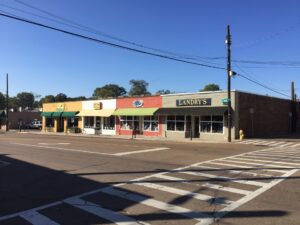 Let me tell you what I’ve seen and experienced since I moved here to Oxford ten years ago. I have seen my hometown grow. I’ve seen people from all over the country move here, I’ve seen new businesses form, new chains come to town, new schools get built. And yet Oxford still maintains it charms. The Square, the great times at The Grove, our rich arts and writer community, our great local restaurants and so much more.
Let me tell you what I’ve seen and experienced since I moved here to Oxford ten years ago. I have seen my hometown grow. I’ve seen people from all over the country move here, I’ve seen new businesses form, new chains come to town, new schools get built. And yet Oxford still maintains it charms. The Square, the great times at The Grove, our rich arts and writer community, our great local restaurants and so much more.
While there have been and will be growing pains, I live in a town that has integrated schools, where African American kids eat with white kids, and the young kids don’t much care about race (though lots of the old folks still seem obsessed about it).
I live in a city that has, only a short drive away, one of the world’s great auto plants. Toyota invested billions in the people of this area to make cars. Cars I like to call Mississippi Toyotas. And the workers employed there – and all the businesses that depend on the income from those workers – are thrilled with that progress.
I live in a state with the highest percentage of African American elected officials in this country, while Wilkie lives in a state – Massachusetts – that ranks among the lowest.
Could Faulkner have ever imagined any of that?
If Mr. Wilkie were listening carefully, what he would hear is the sound of people making choices. Voting with their feet and their wallets. Moving their families – their lives – to this beautiful city.
There is a great scene in “Shawshank Redemption,” where the character played by Tim Robbins implores his friend, played by Morgan Freeman, to change his fatalistic way of thinking.
“I guess it comes down to a simple choice,” he told his friend. “Get busy living, or get busy dying.”
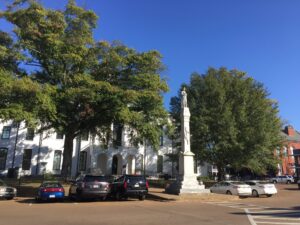 I am happy Oxford has chosen to get busy living. I am thrilled that my daughter Reagan is living in a city that’s growing rather than dying. Thrilled that property values are rising, and the school recently got a top ranking in the state.
I am happy Oxford has chosen to get busy living. I am thrilled that my daughter Reagan is living in a city that’s growing rather than dying. Thrilled that property values are rising, and the school recently got a top ranking in the state.
I might add that like millions of Americans, I am happy to see so called “box stores” like Home Depot and Wal Mart in town, and I’m excited that we’re getting a Five Guys and Chipotle. I love taking my wife and daughter to the great local shops and restaurants in town, too. Boutiques and the box stores, it turns out, can co-exist.
Progressives like Wilkie – and I can only assume he’s a progressive because his column is filled with the usual condescension and moral superiority that such folks exhibit without even knowing it – should be rooting for progress. Particularly economic progress. Economic growth.
Indeed, the only path forward for Mississippi is more capital – the human and the money kind – moving into this state. And more, shall I dare say, Oxfords. As opposed to what we seem to do best in Mississppi, which is export our best and brightest young people to cities like Atlanta, Dallas and Austin.
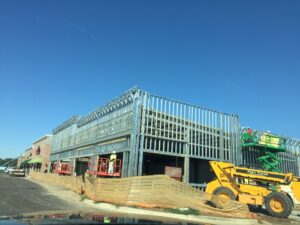 That’s what we who care about Oxford and Mississippi need to worry about each day. We must figure out ways to stop exporting our future to other cities in other states that look like what Oxford is trying to become.
That’s what we who care about Oxford and Mississippi need to worry about each day. We must figure out ways to stop exporting our future to other cities in other states that look like what Oxford is trying to become.
Figure out how to propel Mississippi’s economy into the 21 st century, so more of our kids can choose – after their schooling and training – to stay right here in this great state and build a life, a career and a home.
If that leads to more growth – and some of the byproducts of growth – so be it. For those that don’t care for it, well, you can move to a more bucolic place.
Like Boston.
Lee Habeeb is a VP of Content a Salem Media Group, and host of the nationally syndicated show Our American Stories produced at studios located in Oxford.

Where do we go from here? On Oxford’s past and future
By Carter Wilkie, Special to the EAGLE
I recently came across a travel piece about Oxford, “the Hollywood version of a Southern town.” The description made me wince. Hollywood is make believe. A stage set for the imitation of life. A fabricated backdrop. Fake. Unreal.
It wasn’t always so. My first memories of Oxford are as a five year-old, gathering with four generations of our family at my great-grandmother’s home on Van Buren Ave. (The family homestead in Toccopola had burned down on Christmas Eve, 1920, sending my forebears to Oxford nearly a century ago.)
In the early 1970s, Oxford’s Courthouse Square looked more like Holly Springs does today. A few storefronts were faded and underutilized, their plate glass windows dusty. Old men whittled on benches under the trees while others wearing overalls leaned on their dented pick up trucks, trading news and gossip.
Now, in the 21st century, Oxford’s appeal is so strong because what it symbolizes is so rare: the lost towns across the South that exist only in memories, or the movies. In less than a lifetime, the main streets of most Southern towns have been killed off by Wal-Mart and other economic forces too great to bear. My mother and father each grew up in Mississippi towns of less than 2,000 people apiece. Today, their main streets are virtually ghost towns. Oxford prevailed and endures.
But let’s not kid ourselves that Oxford remains a town anymore. It is a sprawling city of big box stores and restaurant chains, of housing complexes on hilltops and asphalt parking lots consuming the countryside. There is nothing uniquely Southern about another Olive Garden or new brick homes that have metal garage doors where wooden front porches used to be. Historic houses are too expensive for anyone but the wealthy, and what remains distinctive about Oxford, the Square, is almost too cute and boutiquey to feel real.
Faulkner’s Oxford is gone. Oxford has become a victim of its popularity, and every travel writer who touts Oxford as America’s Best Small Town invites more growth, aggravating the growing pains. “It’s hard to argue against success and prosperity, but it’s also hard to deny that much has been lost and Oxford’s golden age is over,” wrote Lisa Howorth eight years ago, in a Garden & Gun magazine article about how Oxford cannibalized its character.
Over the last 40 years, I witnessed a similar transformation happen to Nantucket Island, once the whaling capital of old New England, off Cape Cod, Massachusetts. Until the 1980s, Nantucket was preserved by its remoteness. Then it was discovered. Now, it has become a playground for billionaires, a resort destination more like the Hamptons of New York than the place it used to be.
All the people attracted by Nantucket’s unique sense of place wound up changing the place into something it never was. “This is what happens when too much money descends on too small a location,” the writer David Halberstam once told me. David began his career as a journalist in Mississippi in the 1950s and later made Nantucket his home. Before he died nine years ago, he had grown disenchanted with the way the place had evolved. Could its destiny have been any different?
Nantucket is an island, surrounded by ocean. There are no abutting towns for the excess money to go. By contrast, Hanover, New Hampshire, the home of Dartmouth College and the quintessential New England college town, escaped that fate because it lies within a larger region of well preserved towns in the Upper Connecticut River Valley. Hanover is still livable because its neighboring towns are still wonderful, too. Unlike Oxford, Hanover is not the only magnet for people and money in its region.
The same is true up and down the Berkshire Valley of western Massachusetts, where Norman Rockwell’s town of Stockbridge remains as idyllic as it was, a short drive from the well preserved towns of Lenox, Great Barrington, and Williamstown, the home of Williams College.
Here in North Mississippi, Oxford can avoid Nantucket’s fate if its rapidly beating heart can pump lifeblood into Water Valley and Holly Springs, steering new investment to those old Southern towns while providing an escape valve for new money and investment that would otherwise clog Oxford with too much prosperity and too many high priced homes. In the case of Water Valley, this may be happening already.
Oxford is awash in trendy restaurants, but one entrepreneur could stand out from the crowd by putting her new restaurant in Water Valley. A destination restaurant can put a town on the map as a place to eat. A place to eat then becomes a place to visit. Then a place to visit becomes a place to live. Just look at Taylor, where Taylor Grocery preceded the new “front porch neighborhood” that my brother-in-law, Campbell McCool, is building there.
Holly Springs could use a Laurence Rockefeller, the scion of John D. Jr., who invested some of his wealth to preserve and reinvigorate the New England town of Woodstock, Vermont, once a faded backwater, now a vibrant and popular destination. Mississippi has men of wealth, but are there men of vision and civic sense?
No power broker has the ability to awaken a sleepy town like the University of Mississippi, the 800-pound gorilla in North Mississippi’s regional economy. Ole Miss has satellite operations in Tupelo and Southaven. Future university expansion into Holly Springs and Water Valley could spawn jobs and other good things there, relieving pressure on Oxford to be all things to all.
There is no going back to the past. Getting the future right, however, requires leaders of Oxford – city and university officials, property owners, bankers, business people and officeholders at the county level – to stretch their understanding of how best to grow this city and its region to make it better than it is, and as good as it can be.
Communities have choices: settle for the future you get, or shape the future you want. Oxford still has time to get it right.
Carter Wilkie is co-author of Changing Places: Rebuilding Community in the Age of Sprawl. This column evolved from a talk delivered at The Conference on the Front Porch, held in Taylor last month.
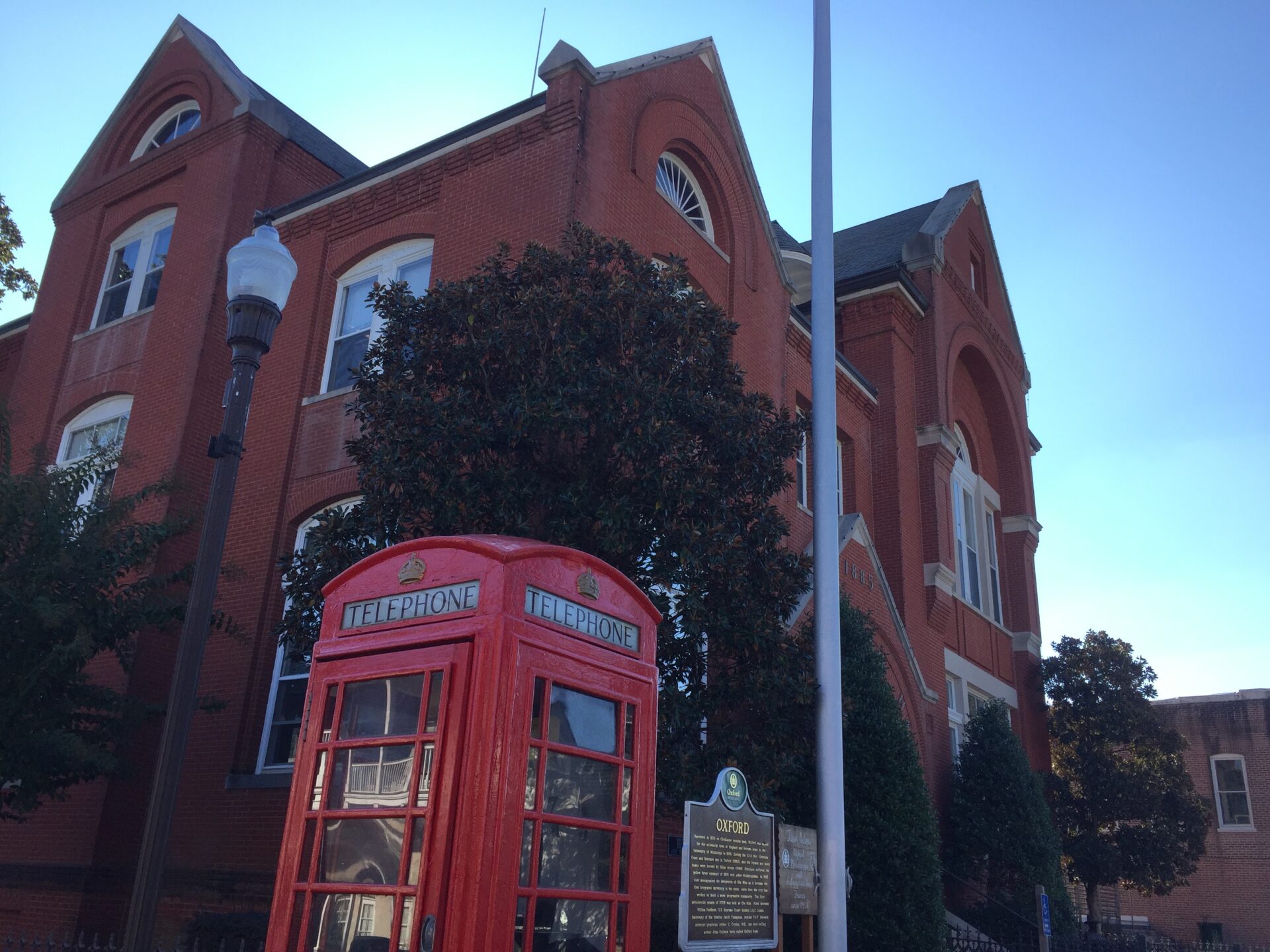
Follow HottyToddy.com on Instagram, Twitter and Snapchat @hottytoddynews. Like its Facebook page: If You Love Oxford and Ole Miss…
